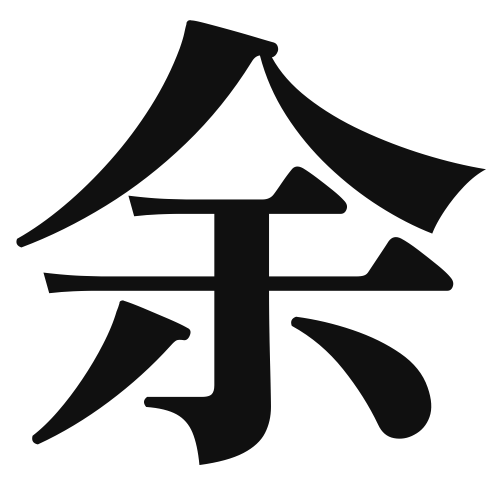1. Overview of Meaning
The kanji “余” (yo) generally means “surplus,” “excess,” or “remaining.” It can also imply a sense of “I” or “myself” in certain contexts, particularly in classical literature.
2. Formation and Radical
Formation of the Kanji: The kanji “余” is classified as a phonetic-ideographic character (形声文字). It combines the meaning of “surplus” with a phonetic component that suggests its pronunciation.
Radical: The radical for “余” is “亻” (the person radical), which often relates to human actions or characteristics.
3. Examples of Usage
Common Words and Phrases: Some frequently used words that include “余” are “余裕” (yoyuu – surplus, margin) and “余計” (yokei – unnecessary, excessive).
Example Sentences in Daily Conversation:
- このプロジェクトには余裕があります。 (Kono purojekuto ni wa yoyuu ga arimasu.) – There is a surplus of time for this project.
- 余計なことを言わないでください。 (Yokei na koto o iwanaide kudasai.) – Please don’t say unnecessary things.
4. Synonyms and Antonyms
Similar Kanji: A similar kanji is “残” (zan), which means “remaining” but often refers to something left over after a part has been removed or used.
Opposite Kanji: An antonym is “不足” (busoku), which means “insufficient” or “lack,” indicating a deficiency rather than a surplus.
5. Cultural and Historical Background
Relation to Japanese Culture: The kanji “余” is often used in literary contexts and can reflect a philosophical view of life, emphasizing the importance of balance and moderation.
Proverbs and Idioms: One common saying is “余計なお世話” (yokei na osewa), which translates to “unnecessary help,” often used to describe someone who meddles in others’ affairs without being asked.
